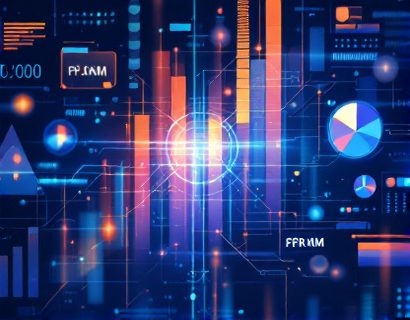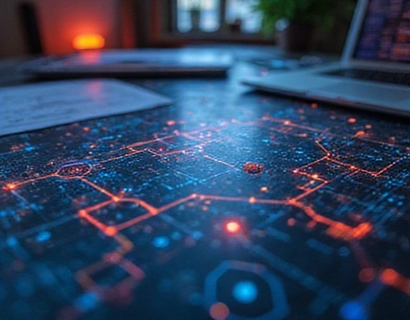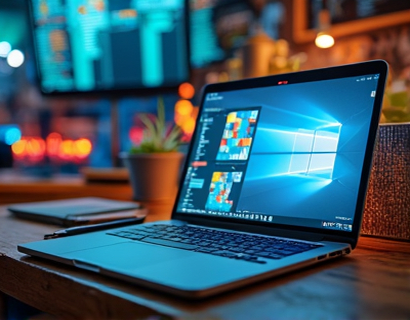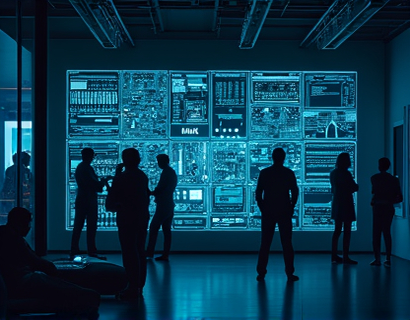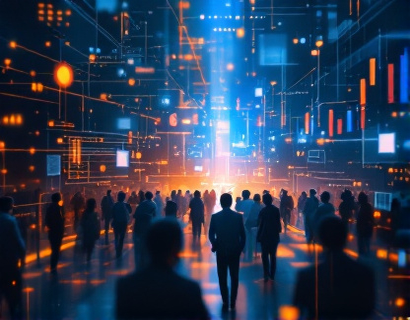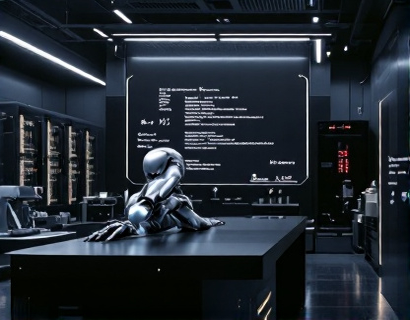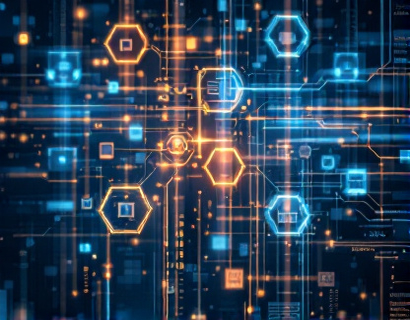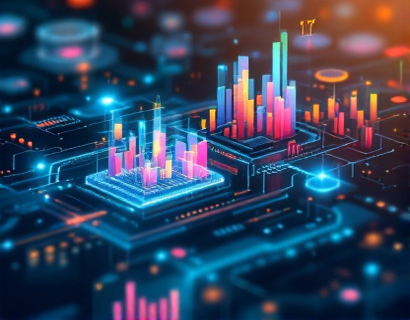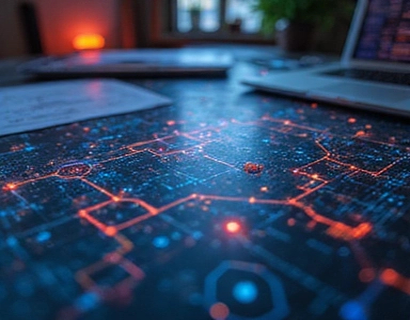Unlocking Enhanced Digital Experiences: Harnessing Crypto and AI for App Innovation
The digital landscape is undergoing a profound transformation, driven by the convergence of blockchain technology and artificial intelligence (AI). This fusion is not just a trend but a revolution that is redefining how we interact with apps and digital services. By leveraging the unique strengths of cryptocurrency and machine learning, developers and innovators are creating experiences that are more secure, personalized, and efficient than ever before. This article delves into the ways these technologies are reshaping the tech ecosystem, offering unprecedented opportunities for early adopters and tech enthusiasts.
The Intersection of Blockchain and AI
Blockchain technology, known for its role in cryptocurrencies, offers a decentralized and transparent way to manage data and transactions. When combined with AI, which excels in processing and analyzing vast amounts of data, the potential for innovation becomes immense. The integration of these technologies can lead to more robust, secure, and intelligent applications. For instance, AI can enhance the efficiency of blockchain networks by optimizing consensus mechanisms and improving transaction processing speeds.
One of the key benefits of this integration is the enhancement of data integrity and security. Blockchain's immutable ledger ensures that data cannot be altered once recorded, while AI can detect and prevent anomalies and fraud in real-time. This synergy creates a more trustworthy environment for users, which is crucial for the adoption of new digital services.
Enhanced User Interactions Through AI-Driven Personalization
AI plays a pivotal role in personalizing user experiences, a aspect where blockchain can add an extra layer of security and privacy. By analyzing user behavior and preferences, AI algorithms can tailor content and services to individual needs, making interactions more relevant and engaging. For example, a streaming service can use AI to recommend shows based on viewing history, while ensuring that user data is stored securely on a blockchain, giving users control over their information.
Moreover, AI-powered chatbots and virtual assistants can provide instant support and guidance, enhancing the user experience. These AI-driven tools can understand natural language, learn from interactions, and adapt to user preferences over time. When integrated with blockchain, these tools can operate with higher reliability and security, as user data is protected and transactions are transparent.
Decentralized Applications and Smart Contracts
Decentralized applications (dApps) are a prime example of how blockchain and AI can collaborate to create innovative digital experiences. dApps run on blockchain networks, eliminating the need for central authorities and reducing the risk of single points of failure. AI can further enhance dApps by providing intelligent decision-making capabilities. For instance, a decentralized finance (DeFi) platform can use AI to optimize loan offerings based on user credit scores and historical data, all while ensuring that transactions are recorded on the blockchain.
Smart contracts, self-executing contracts with the terms directly written into code, are another area where AI can add significant value. AI can analyze complex scenarios and predict outcomes, helping to automate and streamline contract execution. This not only increases efficiency but also reduces the potential for human error and fraud. The combination of smart contracts and AI can lead to more reliable and trustworthy digital agreements.
Privacy and Data Ownership
Privacy concerns have become a major issue in the digital age, and the integration of blockchain and AI offers promising solutions. Blockchain's decentralized nature ensures that user data is not stored in a single location, making it harder for malicious actors to access. AI can further enhance privacy by implementing advanced encryption techniques and zero-knowledge proofs, allowing users to verify information without revealing sensitive details.
Data ownership is another critical aspect. With blockchain, users can have greater control over their data, deciding who can access it and for what purpose. AI can assist in managing these permissions and ensuring that data is used ethically and in compliance with regulations. This empowerment of users is a significant step towards building a more equitable and user-centric digital ecosystem.
Innovative Business Models
The convergence of blockchain and AI is also giving rise to new business models that disrupt traditional industries. For example, in the healthcare sector, AI can analyze medical data stored on a blockchain to provide personalized treatment recommendations. This not only improves patient outcomes but also creates a transparent and secure data-sharing ecosystem. Similarly, in the supply chain industry, AI can optimize logistics and inventory management, while blockchain ensures traceability and authenticity of products.
These innovative models not only enhance operational efficiency but also create new revenue streams. Businesses that adopt these technologies can gain a competitive edge by offering more secure, transparent, and personalized services. Early adopters in these sectors are likely to benefit from first-mover advantages, establishing themselves as leaders in the evolving tech landscape.
Challenges and Considerations
While the potential benefits are significant, there are also challenges to consider. One of the main hurdles is the technical complexity involved in integrating blockchain and AI. Developers need a deep understanding of both technologies to create seamless and effective solutions. Additionally, the regulatory environment for blockchain and cryptocurrency is still evolving, and compliance can be a complex issue.
Another consideration is the scalability of blockchain networks. As the number of transactions increases, blockchain can face performance bottlenecks. AI can help mitigate this by optimizing network operations and predicting potential issues, but it is an ongoing area of research and development.
Future Prospects
The future of digital experiences is bright, with blockchain and AI continuing to drive innovation. As these technologies mature, we can expect to see more sophisticated and user-friendly applications. The integration of 5G and the Internet of Things (IoT) with blockchain and AI will further enhance the capabilities of digital services, creating a more interconnected and intelligent world.
For tech enthusiasts and early adopters, the opportunities are vast. Engaging with communities and platforms that focus on blockchain and AI can provide valuable insights and networking opportunities. Participating in hackathons and innovation challenges can also accelerate the development of groundbreaking solutions.
In conclusion, the fusion of blockchain and AI is revolutionizing the tech ecosystem, offering enhanced security, personalization, and efficiency. By embracing these technologies, we can unlock new levels of innovation and growth, creating digital experiences that are more robust and user-centric than ever before.



